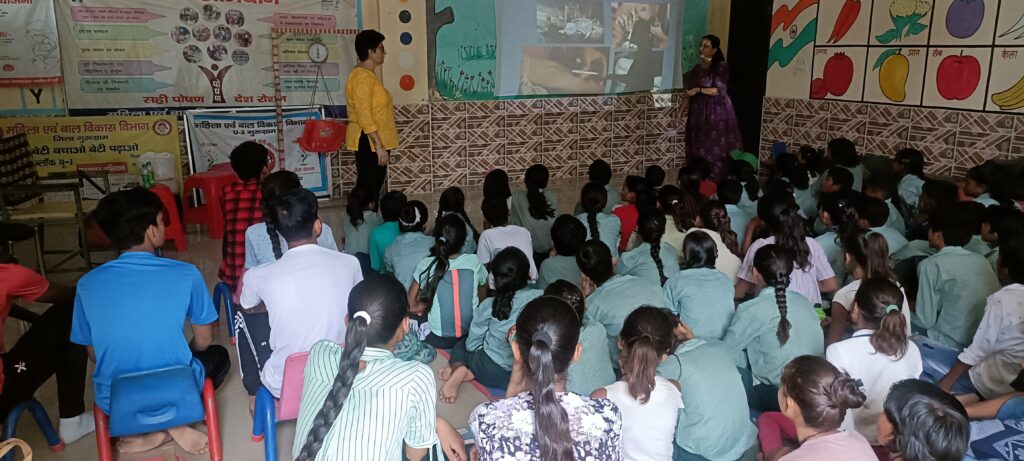
The Key to Unlocking a Brighter Future
Investing in youth education is crucial for the development and progress of any society. Education plays a pivotal role in shaping the future of young individuals, providing them with opportunities for personal and professional growth. It equips them with the necessary knowledge and skills to navigate through life, make informed decisions, and contribute meaningfully to their communities. In this article, we will explore the importance of investing in youth education and delve into the various benefits it brings.
Key Takeaways
- Investing in youth education is crucial for unlocking a brighter future.
- Quality education for youth leads to numerous benefits, including improved health, increased earning potential, and reduced poverty.
- Education plays a significant role in shaping the future by preparing young people for the workforce and promoting innovation.
- Education has a positive impact on economic growth by increasing productivity and creating a skilled workforce.
- Accessing quality education remains a challenge for many young people, highlighting the need for investment in education infrastructure and technology.
The Importance of Investing in Youth Education
Education is not just about acquiring knowledge; it is about empowering individuals to reach their full potential. By investing in youth education, we are investing in the future leaders, innovators, and change-makers of our society. Quality education provides young people with a solid foundation upon which they can build successful careers and lead fulfilling lives.
Furthermore, education opens doors to a world of opportunities. It enables young individuals to explore their interests, discover their passions, and pursue their dreams. It equips them with the necessary skills to adapt to a rapidly changing world and prepares them for the challenges they may face along the way. By investing in youth education, we are investing in a brighter future for all.
The Benefits of Quality Education for Youth
Quality education has numerous benefits for youth development. Firstly, it improves health outcomes. Education equips young individuals with knowledge about healthy lifestyles, disease prevention, and access to healthcare services. It empowers them to make informed decisions regarding their well-being and that of their communities.
Secondly, education is a powerful tool in reducing poverty. By providing young people with quality education, we are equipping them with the skills necessary to secure stable employment and break free from the cycle of poverty. Education empowers individuals to become economically self-sufficient and contribute positively to their communities.
Lastly, education promotes social equality. It provides marginalized youth with an opportunity to overcome barriers and achieve social mobility. Education fosters inclusivity, tolerance, and understanding among individuals from diverse backgrounds. By investing in youth education, we are promoting a more equitable and just society.
The Role of Education in Shaping the Future
| Metrics | Description |
|---|---|
| Literacy Rate | The percentage of the population that can read and write. |
| Enrollment Rate | The percentage of school-aged children who are enrolled in school. |
| Graduation Rate | The percentage of students who complete their education and receive a diploma or degree. |
| Employment Rate | The percentage of individuals who are employed and have completed a certain level of education. |
| Income Level | The average income of individuals with a certain level of education. |
| Research Funding | The amount of money allocated to research and development in the field of education. |
Education plays a crucial role in shaping the future of individuals and society as a whole. It equips young people with the knowledge and skills necessary to tackle the challenges of the future. In an ever-evolving world, education is essential for promoting innovation, progress, and sustainable development.
By investing in youth education, we are nurturing the next generation of thinkers, problem solvers, and leaders. Education fosters critical thinking, creativity, and analytical skills, which are vital for addressing complex issues and finding innovative solutions. It empowers young individuals to challenge the status quo, think outside the box, and contribute to positive change.
Moreover, education instills values such as empathy, compassion, and social responsibility. It encourages young people to become active citizens who are engaged in their communities and committed to making a difference. By investing in youth education, we are investing in a future where individuals are equipped with the necessary tools to shape a better world.
The Impact of Education on Economic Growth
There is a strong connection between education and economic growth. Quality education is a catalyst for economic development as it equips young individuals with the skills necessary to participate in the workforce and contribute to economic productivity. By investing in youth education, we are investing in the future workforce that will drive economic progress.
Education promotes entrepreneurship by fostering creativity, problem-solving skills, and business acumen. It empowers young individuals to start their own businesses, create jobs, and contribute to economic growth. Furthermore, education enhances employability by equipping young people with industry-relevant skills that are in demand in the job market.
Moreover, education reduces income inequality by providing equal opportunities for all individuals to access quality education. It breaks down barriers and enables individuals from disadvantaged backgrounds to overcome socio-economic constraints. By investing in youth education, we are promoting social mobility and reducing the gap between the rich and the poor.
The Connection between Education and Social Development
Education has a profound impact on social development. It promotes social cohesion by fostering understanding, tolerance, and respect among individuals from diverse backgrounds. Education equips young people with the knowledge necessary to challenge stereotypes, combat discrimination, and promote inclusivity.
Furthermore, education is a powerful tool in reducing social inequality. It provides marginalized youth with an opportunity to break free from the cycle of poverty and achieve social mobility. Education empowers individuals to become active participants in their communities, contributing positively to social progress.
Moreover, education plays a crucial role in promoting gender equality. It empowers girls and women by providing them with equal access to education and opportunities for personal and professional growth. By investing in youth education, we are investing in a society where all individuals have equal rights and opportunities.
The Challenges of Accessing Quality Education for Youth
Despite the importance of investing in youth education, there are numerous challenges that young people face in accessing quality education. Poverty is one of the major barriers to education. Many young individuals come from low-income families that cannot afford the cost of education, including school fees, uniforms, textbooks, and transportation.
Discrimination is another challenge that affects access to education. Marginalized groups such as girls, children with disabilities, and ethnic minorities often face discrimination and exclusion from educational opportunities. This perpetuates social inequality and hinders their ability to reach their full potential.
Conflict and instability also pose significant challenges to accessing quality education. In conflict-affected areas, schools are often destroyed or used for military purposes, leaving young individuals without access to education. Moreover, the psychological trauma caused by conflict can hinder learning outcomes and impede educational progress.
The Need for Investment in Education Infrastructure
Investing in education infrastructure is crucial for ensuring access to quality education for all young individuals. Governments and the private sector play a vital role in providing the necessary resources to build and maintain schools, classrooms, libraries, and other educational facilities.
Furthermore, investment in education infrastructure should also focus on improving the quality of education. This includes providing teachers with adequate training and professional development opportunities, ensuring access to quality teaching materials and resources, and integrating technology into the learning process.
Investment in education infrastructure is an investment in the future. It is a commitment to providing young individuals with the necessary tools and resources to succeed academically and professionally. By investing in education infrastructure, we are investing in a society where every young person has equal access to quality education.
The Role of Technology in Enhancing Youth Education
Technology has revolutionized the field of education, enhancing access to learning opportunities and improving learning outcomes. The use of technology in education has the potential to bridge the digital divide and provide equal access to quality education for all young individuals.
Technology enables distance learning, allowing young people in remote areas or those unable to attend traditional schools to access educational resources online. It also provides interactive learning experiences through multimedia content, simulations, and virtual reality, making learning more engaging and effective.
Moreover, technology facilitates personalized learning by adapting to individual students’ needs and learning styles. It provides instant feedback, tracks progress, and identifies areas for improvement. By integrating technology into education, we can create a more inclusive and learner-centered approach that caters to the diverse needs of young individuals.
The Importance of Teacher Training and Professional Development
Teachers play a crucial role in promoting quality education and improving learning outcomes. Investing in teacher training and professional development is essential for equipping educators with the necessary skills and knowledge to effectively engage students and facilitate their learning.
Teacher training programs should focus on pedagogical approaches that promote critical thinking, creativity, and problem-solving skills. They should also provide teachers with the necessary tools and resources to integrate technology into their teaching practices and create interactive and engaging learning environments.
Furthermore, ongoing professional development opportunities are essential for teachers to stay updated with the latest educational research and best practices. It enables them to continuously improve their teaching methods, adapt to changing educational trends, and meet the evolving needs of young individuals.
Investing in teacher training and professional development is an investment in the quality of education. By empowering teachers with the necessary skills and knowledge, we are ensuring that young individuals receive a high-quality education that prepares them for the challenges of the future.
The Role of Parents and Community in Youth Education
Parents and the community play a crucial role in supporting youth education. Their involvement is essential for creating a conducive learning environment and promoting positive learning outcomes.
Parents should actively engage in their children’s education by providing support, encouragement, and guidance. They should create a home environment that values education, promotes reading, and encourages curiosity. By fostering a love for learning at home, parents can instill a lifelong passion for education in their children.
Moreover, community engagement is vital for promoting education. Communities can support youth education by establishing libraries, organizing educational programs and workshops, and providing scholarships or financial assistance to students in need. By working together, parents, communities, and schools can create a holistic educational ecosystem that nurtures young individuals’ growth and development.
The Long-term Benefits of Investing in Youth Education
Investing in youth education has numerous long-term benefits that extend beyond individual growth. Quality education has a transformative impact on personal and professional development, social development, and economic progress.
On an individual level, education opens doors to a world of opportunities.
It equips young individuals with the necessary skills to pursue their passions, secure stable employment, and lead fulfilling lives. Education empowers individuals to become active citizens who contribute positively to their communities and make a difference in the world.
Furthermore, education promotes social development by fostering inclusivity, tolerance, and understanding.
It breaks down barriers and reduces social inequality. Education empowers marginalized youth to overcome socio-economic constraints and achieve social mobility. By investing in youth education, we are investing in a more equitable and just society.
Economically, investing in youth education is crucial for promoting economic growth and reducing poverty.
Education equips young individuals with the skills necessary to participate in the workforce, create jobs, and contribute to economic productivity. It reduces income inequality by providing equal opportunities for all individuals to access quality education.
Investing in youth education is essential for shaping a brighter future.
Education plays a pivotal role in empowering young individuals, providing them with opportunities for personal and professional growth. It promotes health, reduces poverty, and fosters social equality. Education shapes the future by promoting innovation, progress, and sustainable development.
However, there are challenges that young people face in accessing quality education, such as poverty, discrimination, and conflict. Investment in education infrastructure is crucial for ensuring access to quality education for all young individuals. Technology enhances youth education by bridging the digital divide and providing personalized learning experiences.
Teacher training and professional development are essential for promoting quality education. Parents and the community play a vital role in supporting youth education by creating a conducive learning environment. Investing in youth education has long-term benefits that extend beyond individual growth to social development and economic progress.
investing in youth education is an investment in a brighter future for all. It is a commitment to providing young individuals with the necessary tools and resources to succeed academically, professionally, and personally. By investing in youth education, we are investing in a society where every individual has equal access to quality education and the opportunity to reach their full potential.


